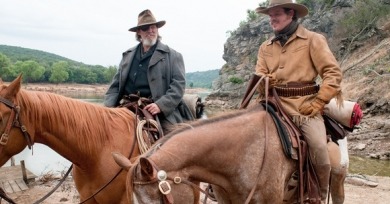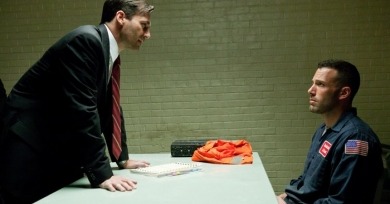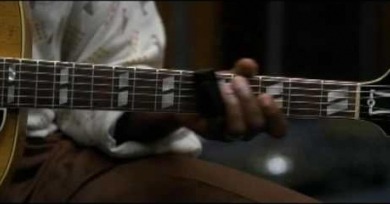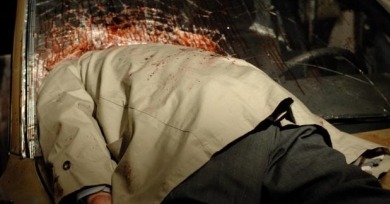Justin Stewart
Mechanically, Unknown, the new picture from Jaume Collet-Serra, isn’t all that different than midforties Hollywood cloak-and-dagger thrillers or later Cold War espionage actioners.
The early teaser of True Grit that played before last summer’s Inception presented staccato shots of glowering cowboys raising heads and six-shooters from the shadows, cocking them at quivering defenseless victims, and muttering cryptic macho dialogue.
It remains tethered to noir and thriller conventions, but more intently commits to probing character psychology and, with narrative obfuscations, stubborn silences, and stylistic mood swings, venturing outside assumed viewer comfort zones.
“It's Heat meets The Departed!” shout the TV ads, forgivable marketing puffery that the entertaining but chronically hackneyed The Town can't possibly begin to live up to.
His choice to tackle this fictionalized story of Nevada’s notorious Mustang Ranch, the state's first legalized brothel, marked a chance for him to reconnect with Devil's Advocate sleaze, but Love Ranch’s tameness and sentimentality hints that the 65-year-old, whose most recent movie was 2004's Ray, is softening.
There's a genuinely touching movie here—Evets’s excellent performance and his character's nervous breakdown and possible redemption through forgiveness and rekindled affections—but the layers of padding that contain it end up overcushioning its impact.
Midway through Who Do You Love, Muddy Waters and his band are in a rural pool hall having a loud good time, when harmonica player Little Walter brushes against a white man in billiard shot stance. Violence erupts, epithets fly, and murder seems imminent until officers arrive (absurdly quickly) and break it up.
Following Taken, this second version of A Heavily Armed American in Paris exchanges the revenge architecture for cop buddy digs, though it never settles into them in a predictable way.
Updating the private investigator film with September 11 shadings is not a terribly novel idea, but writer/director Noah Buschel isn't an idea man.
Deciding which short is the worst can provide its own kind of fun, as an email thread with a friend proved, but it's hard not to single out Brett Ratner's garish tale of virginity lost.
Though Bronson, about England's most notorious inmate, fights and sweats to furnish some sort of point out of its menagerie of beat downs and stylistic gambles, it ultimately fails.
In the early Nineties, writer Neale Donald Walsch was living in a tent and surviving on recycled can money. He had a broken neck, a broken marriage, and a burnt-down house. Then he turned to God, and found Him surprisingly chatty.
Fighting's chief auteur might be producer Kevin Misher, who also helped greenlight the first Fast and the Furious movie. Logically wanting to replicate that film's massive success outside of the franchise, he sought another illicit world of extreme hetero recreation.
At the end of Sunshine Cleaning, after all of the brain and blood has been wiped up, the reasons for the heroines' neuroses elucidated, and their futures left open-ended, Norman Greenbaum's “Spirit in the Sky” takes us to the credits.
Tom Cruise was supposedly drawn to the role of German Resistance hero Claus von Stauffenberg when he noticed how much he looks like the Nazi.
Even though the film seems a trifle proud that it’s based on fact (an opening title card informs that “The story you are about to see is true”), What Doesn’t Kill You’s experiential personal involvement does distinguish it from its generic makeup.
If you've ever yearned to watch (as well as hear and practically feel) Academy Award nominee Stephen Rea writhe gorily in windshield glass for the better part of 85 minutes, Stuck is your movie.
It's not often that a director disappears quite so purposely as Gus Van Sant did into Good Will Hunting.
Ben Affleck can do little wrong by me, but it's difficult to say why. A resume with lowlights as low as Reindeer Games, Pearl Harbor, and Gigli and highlights as modest as Good Will Hunting and Hollywoodland can't be the answer.
What limited pleasures this Hoax supplies can be credited mostly to the fascinating con (and subsequent memoir) that served as its source material.



















